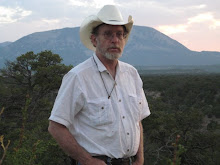There are two days in April that are very important to my spirit. One is, of course, Shakespeare's traditional birthday on April 23 and, April 22, which is Earth Day.
How do you celebrate a birthday for a man who “shucked his mortal coil” 393 years ago? Well, you can as the (one time) Mayor of Chicago Richard Daley suggested have a "Talk like Shakespeare Day." Me thinks that this may be achiev'd by adding a few Shakespeare quotes to your daily discussion. Brush Up Your Shakespeare! By Michael Macrone is a good source for quotes and the meaning.
It is also fun to keep an ear out for Shakespeare quotes or paraphrases. I often hear Shakespeare quotes used on television programs. You may like to celebrate by adding Shakespeare to your movie night. My two favorites are Kenneth Branagh’s Henry the Fifth because of the realistic battle scenes and the stirring musical score, and his Hamlet, which is the only full filmed version that I know about. To tie Shakespeare to Earth Day watch a performance of As You Like It a comedy about folk that leave the "public haunts" to seek "Tongues in trees, books in the running brooks, Sermons in stones, and good in everything."
Earth Day. On this day I have heard a lot about renewable energy, which of course photovoltaics are, I believe, the best option of all the many technologies that are being held up as an answer to climate change.
I would like those who support renewable energy sources to know one undeniable fact. That is, we are not going to get to that beautiful future of clean energies--hydrogen-powered transportation and silicon rooftops making sun-fueled electrical power--without fossil fuel centralized grid power. Those in the green power movement who talk of a revolution and call for immediate development are fooling you and themselves. To make the changes that they want we will need to increase our electrical generation to meet the demand and the only way that can be achieved in the short time constraints call for is with the existing dirty technologies.
What we need are programs of sustained solar development based on home and office Utility InterActive PhotoVoltaic systems. This means you. You make the change to develop this energy resource. When home and office UIAPV sources are developed the grid power can be used to power larger and more PV manufacturing sites.
Grid power will be with us for a long time. If we smartly develop green technology and use it to replace older technologies, we can build a sustainable future without disrupting the great electrical energy system that got America to the 21st century.
How do you celebrate a birthday for a man who “shucked his mortal coil” 393 years ago? Well, you can as the (one time) Mayor of Chicago Richard Daley suggested have a "Talk like Shakespeare Day." Me thinks that this may be achiev'd by adding a few Shakespeare quotes to your daily discussion. Brush Up Your Shakespeare! By Michael Macrone is a good source for quotes and the meaning.
It is also fun to keep an ear out for Shakespeare quotes or paraphrases. I often hear Shakespeare quotes used on television programs. You may like to celebrate by adding Shakespeare to your movie night. My two favorites are Kenneth Branagh’s Henry the Fifth because of the realistic battle scenes and the stirring musical score, and his Hamlet, which is the only full filmed version that I know about. To tie Shakespeare to Earth Day watch a performance of As You Like It a comedy about folk that leave the "public haunts" to seek "Tongues in trees, books in the running brooks, Sermons in stones, and good in everything."
Earth Day. On this day I have heard a lot about renewable energy, which of course photovoltaics are, I believe, the best option of all the many technologies that are being held up as an answer to climate change.
I would like those who support renewable energy sources to know one undeniable fact. That is, we are not going to get to that beautiful future of clean energies--hydrogen-powered transportation and silicon rooftops making sun-fueled electrical power--without fossil fuel centralized grid power. Those in the green power movement who talk of a revolution and call for immediate development are fooling you and themselves. To make the changes that they want we will need to increase our electrical generation to meet the demand and the only way that can be achieved in the short time constraints call for is with the existing dirty technologies.
What we need are programs of sustained solar development based on home and office Utility InterActive PhotoVoltaic systems. This means you. You make the change to develop this energy resource. When home and office UIAPV sources are developed the grid power can be used to power larger and more PV manufacturing sites.
Grid power will be with us for a long time. If we smartly develop green technology and use it to replace older technologies, we can build a sustainable future without disrupting the great electrical energy system that got America to the 21st century.

